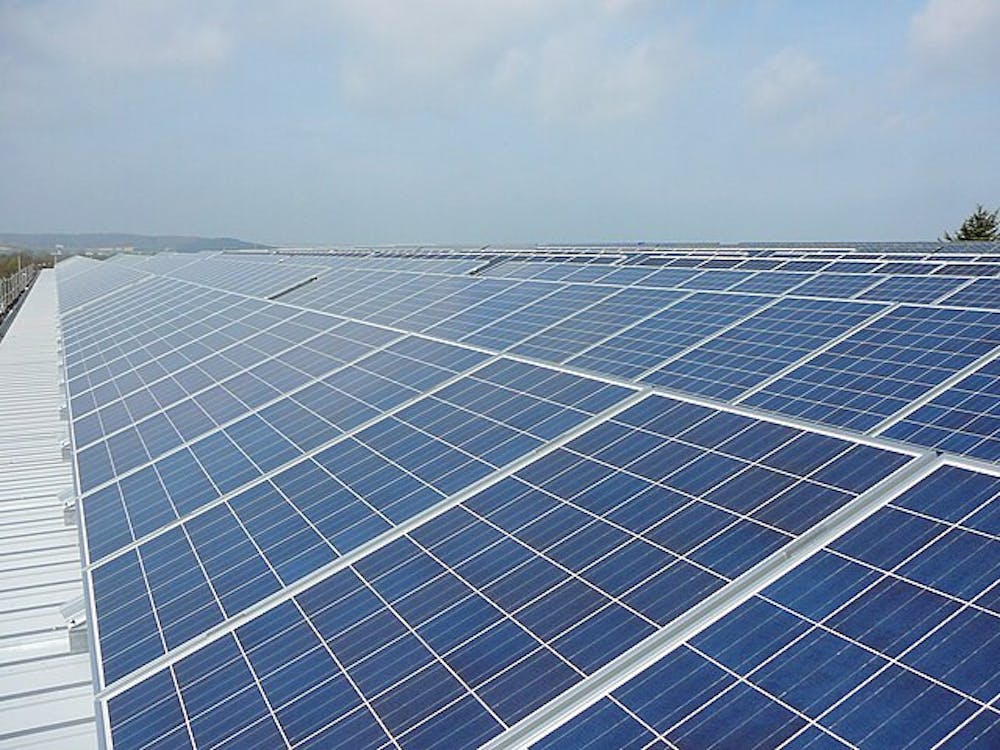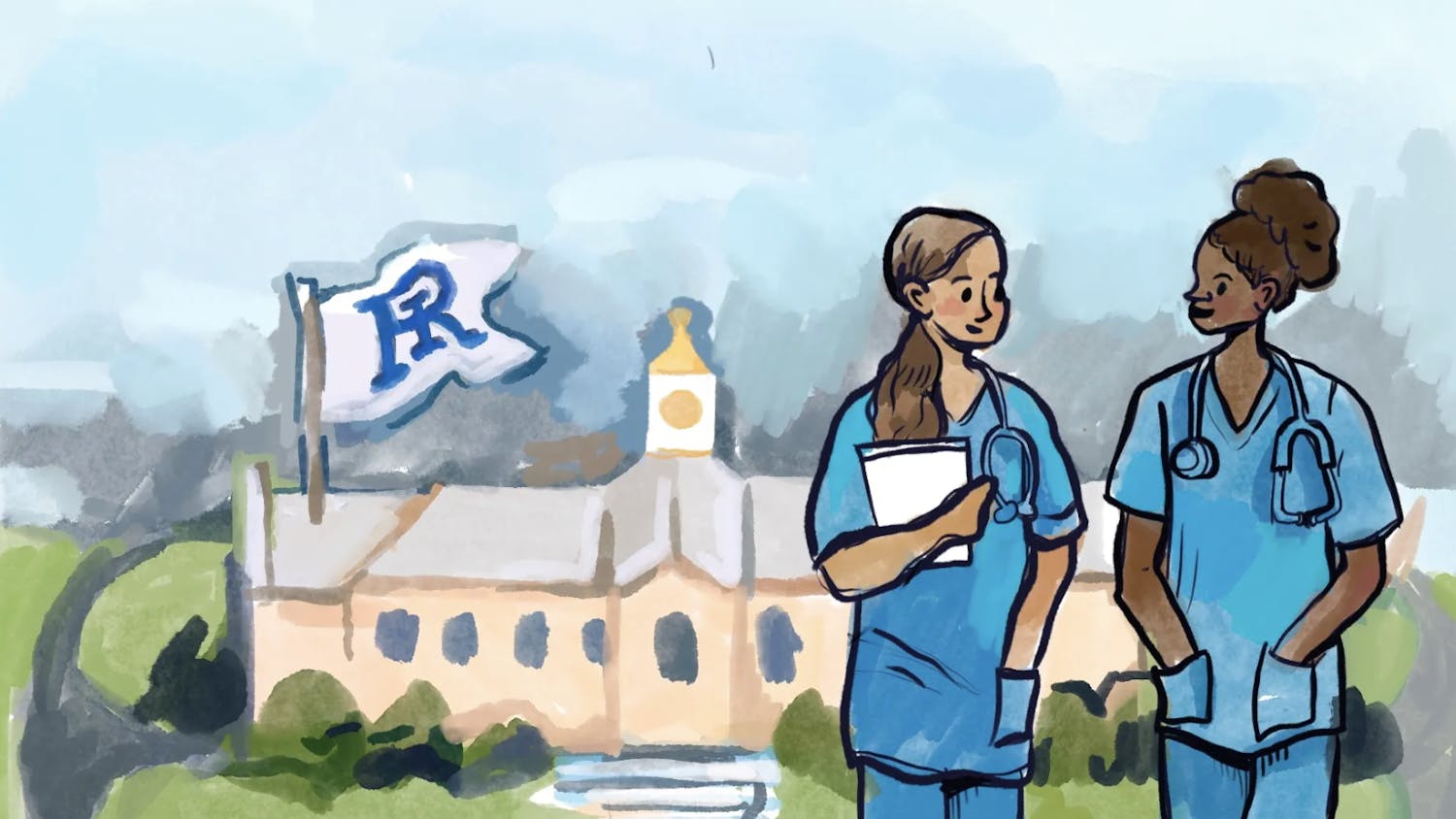A special legislative commission studying the placement of solar panels on interstate highways was announced in a September press release from the Rhode Island state House of Representatives. In their short inaugural meeting Sept. 13, the commission discussed which stakeholders to include in future hearings and determined next steps.
The commission will “study and provide recommendations for the most appropriate placement of solar panels on median strips on interstate highways and route 146, carports at state parking lots” and any additional locations that the commission determines, according to the House resolution creating the commission. They will then offer recommendations to the state House on or before April 11, 2024.
The commission is comprised of three state representatives — state Rep. Robert Phillips (D-Woonsocket, Cumberland), state Rep. Matthew Dawson (D-East Providence) and state Rep. David Morales (D-Providence) — along with officials from the Rhode Island Department of Transportation, Department of Environmental Management, Public Utilities Commission and Office of Energy Resources.
Phillips, who introduced the resolution in 2022 and its extension in 2023, was elected as the commission chair during the meeting. He suggested bringing a number of stakeholders — including companies experienced in solar panel installation and manufacturing, academics with expertise in renewable energy and the Federal Highway Administration — to future commission hearings, which he said will occur monthly.
Phillips noted that it would also be important to speak with utility Rhode Island Energy to ensure that the company has the infrastructure to take on additional energy produced by the highway solar panels.
According to Phillips, bringing in counterparts at the Massachusetts Department of Transportation might also be beneficial, as the state has already placed solar panels alongside some of its highways.
Dawson pointed to Oregon as a useful example; the state was the first to implement “large-scale solar roadway projects” in the country, starting in 2008.
“Obviously, we’re not the first state to think of this,” Dawson said. “If you want to do something, find someone else that did it and copy what they did.”
Dawson said that he believes that placing solar panels on highway medians will help address what he sees as one of the biggest issues with producing solar energy: scale.“We don’t have enough room,” to place solar panels, he said, explaining how the space necessary to install the large panels usually require deforestation. “You can’t take down all the trees”
“Nobody really cares about the median strip on the highway,” he added with a laugh.
Morales said that the commission has the flexibility to go beyond just the highway median and focus on highways as a whole. He added that the ability to explore different possibilities is “the beauty of the study commission.”
Morales said that he hopes to see the involvement of organized labor in the commission's future discussions around building solar panels, specifically the International Brotherhood of Electrical Workers.
For Dawson, it’s important to constantly “run (projects) by the community.”
According to Phillips, the commission hopes to make their official recommendation on whether or not to implement roadside solar projects by April 2024. “That gives us about 6 months to really delve into the situation and see if the feasibility is there,” he said.
Morales added that providing recommendations in April — well before when the General Assembly passes the budget in mid-June — will ideally give legislators time to discuss “how we can actually leverage these recommendations and get funding for them.”
Money from the federal government is also available for the project, Phillips said.
Morales said that he expects that the amount of funding required for the project will depend on the recommendations of the commission and will likely “require state investment and possibly federal reimbursement or federal grants as well.”
Dawson said that while fiscal concerns come “first and foremost,” he believes that the placement of solar panels will pay for itself, creating cheaper energy and jobs.
According to Phillips, the commission is a direct response to the state’s 2021 Act on Climate, which sets a goal to reach net-zero emissions by 2050. “When we came up with the Act on Climate, I stood up and asked the question: What’s the plan to get us there?” he said.
For Morales, solar panels on the highway are just “one piece of the puzzle as it relates to actually making sure we meet our carbon goals.”
Dawson noted that in the past other special commissions have had success with more contentious issues that people are enthusiastic about, such as shoreline access. “I think we’re not going to have a lot of problems getting something effective done,” he said.
Phillips echoed Dawson’s optimism for the final recommendation: “I think this is something that people want,” he said. He added that the commission may also discuss building small wind turbines near highways to generate energy from the wind created by vehicles driving by.
The commission’s next meeting will take place on Oct. 4.

Jacob Smollen is a Metro editor covering city and state politics and co-editor of the Bruno Brief. He is a junior from Philadelphia studying International and Public Affairs.

Julia Vaz was the managing editor of newsroom and vice president on The Herald's 134th Editorial Board. Previously, she covered environment and crime & justice as a Metro editor. A concentrator in political science and modern culture and media, she loves watching Twilight (as a comedy) and casually dropping the fact she is from Brazil.





